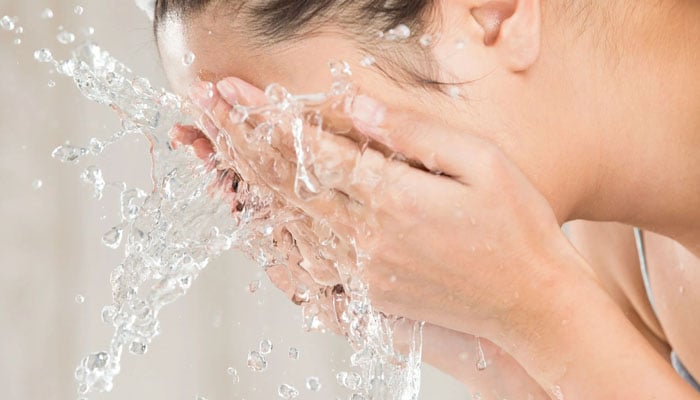Why dermatologists don't want you to wash your face in morning?
Washing your face twice in day is considered vital for skin but it might contain more harm than good
Washing your face twice a day is a vital part of maintaining clean, healthy skin, but might it be doing more damage than good?
The majority of people follow regular morning and evening routines, which frequently include skincare. However, other people are cautioning online that cleaning your face twice a day is overly beneficial.
“If you are cleansing your skin morning and night, you may be over-stripping your skin, which results in a barrier dysfunction, breakout, redness, and more skin concerns,” said Maja, a medical aesthetician.
There is no universally applicable answer for how often someone should cleanse their skin. Instead, it depends on each person's unique skin type, MDCS Dermatology board-certified dermatologist Carolyn Stull, MD, told Health.
Some people may benefit from washing their faces twice a day, especially those with oily or acne-prone skin.
Morning face washing “can help remove excess sebum and dead skin cells, which can clog the pores,” Stull explained. "It’s also a good way to get rid of residue from skincare products, including petroleum, waxes, butters, and heavy oils," she said.
While washing your face first thing in the morning can help some people's skin, it's not a must for everyone.
Cleaning twice a day may be too drying for people with sensitive skin or inflammatory skin diseases like psoriasis, rosacea, and eczema, according to Stull.
“It’s important not to overdo it,” she explained. “Stripping the skin of the natural lipids produced overnight can compromise skin barrier function, making the skin more susceptible to irritation.”
-
Can brain stimulation make people kinder & less selfish? New study offers hope
-
Mariah Carey details 'hardest' bipolar disorder experience
-
Pink reveals health routine for asthma management
-
Gigi Hadid talks about 'relieving tension' amid having Hashimoto's disease
-
Selena Gomez explains why she thought lupus was 'life-or-death'
-
How Kim Kardashian made her psoriasis ‘almost’ disappear
-
Nick Jonas gets candid about his type 1 diabetes diagnosis
-
Sir Jackie Stewart’s son advocates for dementia patients












